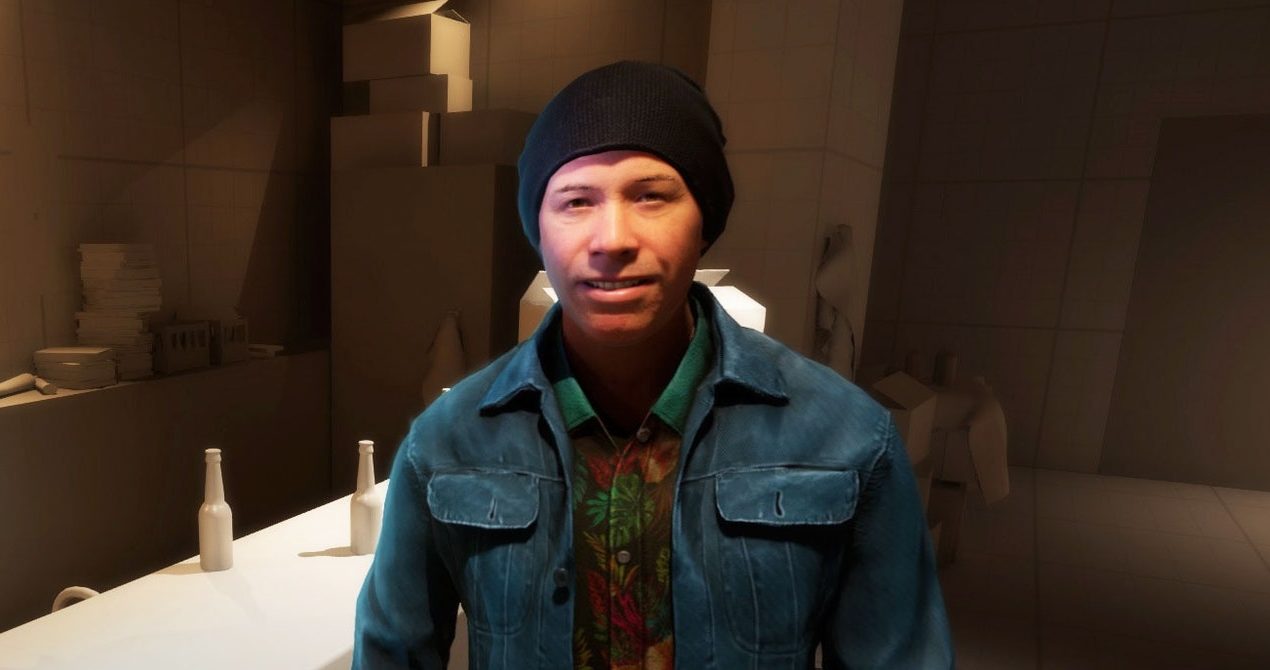Bloom, a non-player character with a face like a potato and a black beanie pulled tight around his ears, wants to know about my strategy and how I fare in combat. “I follow a map and I punch hard,” I reply into the microphone. Text of our conversation flashes across the bottom of my screen. The NPC thinks I’m bragging. He continues to drone on about our place in the resistance and how we need to fight back, his AI-driven voice tinny enough to sound mechanical but not grating.
What Bloom doesn’t tell me, at least not directly, is that he’s a “neo NPC”—a generative AI creation from French video game publisher Ubisoft designed to enable players to hold conversations with characters. Bloom is still very much in his R&D era, but his creation represents one of the many ways that game companies are looking to integrate machine learning into their offerings.
At last week’s Game Developers Conference, where I got my chance to socialize with Bloom, the industry’s AI boom was in full swing. In addition to Ubisoft’s demo, there were panels on everything from bot basketball players to the “transformative applications” of gen AI. But there were also talks from the Screen Actors Guild–American Federation of Television and Radio Artists union (SAG-AFTRA) about deepfakes and the impacts that AI could have on the careers of gamemakers. Prior to the event, a poll conducted by GDC organizers found that 49 percent of surveyed devs are using generative AI at their companies; four in five developers surveyed, however, said they’re concerned about the ethics of doing so.
Amid these talks, the notion of using AI for NPCs came to the fore. In addition to Ubisoft’s demo, Nvidia—the company behind many of the GPUs powering much of the AI revolution—brandished a suite of tools that enable “developers to build digital humans capable of AI-powered natural language interactions.” The company showed off those tools by releasing a clip of Covert Protocol, a tech demo it made with AI character company Inworld.
Ubisoft demonstrated its neo NPCs, which also use Nvidia tech, in three ways. First, I talked to Bloom to achieve a few game-given goals: Get closer to Bloom, find out about the megacorps ruling the world, learn about the resistance, and so on. Bloom is effortless to fire questions off to, and he’s generally good natured. He’s been designed to be easy to handle, Ubisoft senior data scientist Mélanie López Malet tells me, though there are other NPCs they’ve created that are more standoffish, if not downright aggressive. The team decided to add goals to his interactions, she explains, because in the company’s early testing they found players can get a little … shy.
“There are people that have a bit of social anxiety,” Malet says. They don’t want to bother NPCs who seem busy, or they’re taken aback by characters that appear angry. They don’t always know what to say. “[Players] were like, ‘It’s like I’m at party where I know nobody, oh my God,’” Malet says. But she sees this as a good thing: It means the NPCs are inspiring people to use their social instincts. Players are also far more likely to open up and get personal when it’s a text conversation. “There are some things you don’t say out loud, you know?” Malet says.
Source




